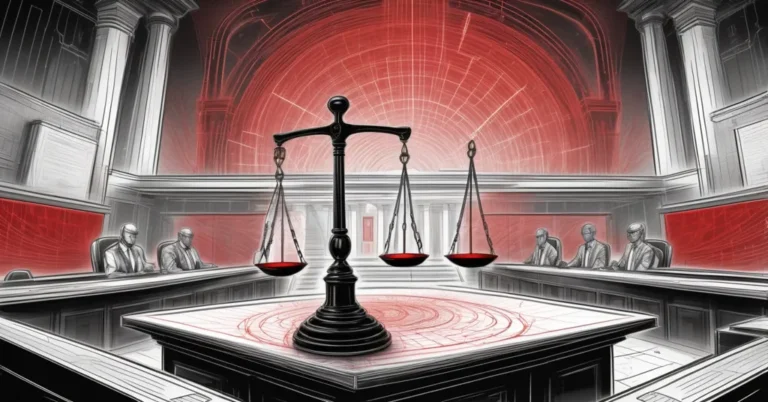xAI and OpenAI’s Litigation Over Talent and Trade Secrets
Amid the relentless scramble for top-tier talent in the artificial intelligence space, a heated legal dispute has emerged between xAI and OpenAI. Accusations have flown, with allegations that OpenAI deliberately courted key xAI employees to uncover proprietary technologies and confidential business insights. The suit, filed in a California federal court, centers on claims that the recruitment moves were aimed at obtaining details about xAI’s Grok product—its source code, strategic plans, and even data center operations.
Understanding the Dispute
The allegations outline that engineers such as Xuechen Li and Jimmy Fraiture, along with a former senior finance executive, were targeted by recruitment drives designed to push them into breaking confidentiality agreements. In straightforward terms, the suit asserts that these hires were not simply filling vacancies but were being lured away in a bid to steal trade secrets. As one statement in the lawsuit puts it:
“OpenAI is targeting those individuals with knowledge of xAI’s key technologies and business plans, including xAI’s source code and its operational advantages in launching data centers, then inducing those employees to breach their confidentiality and other obligations to xAI through unlawful means.”
Elon Musk, now leading xAI, has expressed frustration over repeated attempts at resolving the matter privately. “We sent them many warning letters, but they continued to cheat. Lawsuit was the only option after exhausting all others,” he stated. By contrast, OpenAI dismisses the allegations as part of a personal vendetta, with spokespersons labelling the claims as “the latest chapter in Mr. Musk’s ongoing harassment.” Furthermore, OpenAI’s CEO Sam Altman countered these claims, suggesting that the motivations behind the lawsuit were steeped in personal rivalry rather than solely being about protecting business interests.
Simplifying the Legal and Business Implications
To put it simply, confidentiality agreements are legal promises that prevent employees from sharing sensitive information about their company’s operations. When such agreements are breached, it can have serious repercussions, including the loss of competitive advantage and damage to a company’s reputation. In this case, if the recruitment strategies are found to have been designed to trigger these breaches, it could not only hurt the companies involved but also set a precedent for aggressive talent acquisition tactics across the AI industry.
This conflict raises important questions about how companies balance aggressive recruitment with ethical practices, especially in sectors as competitive and fast-moving as AI automation and AI for business. It also makes us ask whether such tactics might ultimately stifle healthy competition and innovation—cornerstones of progress in the realm of generative AI chatbots and broader AI applications.
Business Impact and AI Talent Acquisition
From a business perspective, the case underscores a critical challenge: protecting intellectual property while remaining agile enough to innovate. Employee poaching, when conducted without regard for confidentiality, can disrupt business operations and lead to costly legal battles. The outcome of this litigation may prompt companies across the AI landscape to re-examine their recruitment strategies and internal safeguards, particularly as firms ramp up investments in AI agents and business automation tools.
Moreover, industry players may need to rethink how they manage transitions and safeguard proprietary data. This dispute is a signal that as the pursuit for top talent intensifies, so too will scrutiny over the ethical and legal boundaries of competitive recruitment practices.
Expanding into New Markets: AI for Government
While the legal drama unfolds, xAI is also making a strategic move by launching a new initiative aimed at federal agencies. With “xAI For Government,” the company is offering its advanced Grok models at a nominal fee, including full integration support. This pivot not only widens xAI’s market reach but also hints at a broader trend where AI companies extend their innovations beyond the private sector. By tapping into government contracts, xAI is positioning itself as a key player in the emerging world of AI for public sector applications, potentially reshaping how government agencies approach AI automation and security.
Key Takeaways for Business Leaders
- What impact might this lawsuit have on OpenAI’s reputation and recruitment practices?
The legal battle could force OpenAI and other companies to re-assess how they attract top talent, ensuring recruitment practices align with ethical standards and robust confidentiality protections.
- How might this dispute change industry norms regarding employee poaching?
If these claims gain traction, we could see a shift towards stricter enforcement of non-disclosure agreements and more cautious recruitment strategies in the competitive AI sector.
- Could increased regulatory scrutiny be on the horizon for AI companies?
Regulators may consider implementing clearer guidelines to protect confidential information in industries where rapid technological advancements often blur traditional boundaries.
- Does xAI’s government initiative signal broader opportunities for AI in public sectors?
By venturing into government contracts, xAI highlights a growing trend where AI innovations extend beyond commercial markets, offering new avenues for strategic growth in public sector applications.
The unfolding legal contest between xAI and OpenAI not only highlights individual corporate battles but also serves as a microcosm of the broader challenges in balancing innovation with ethical business practices. For business leaders navigating the rapidly evolving AI landscape, this case serves as a reminder to continuously scrutinize recruitment practices and confidentiality protocols as they harness the transformative power of AI automation and generative chatbots.
